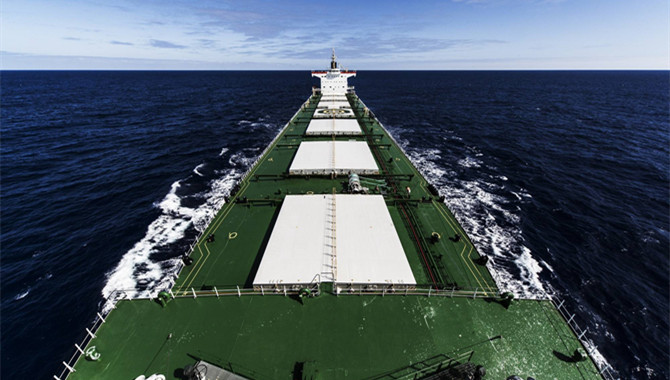The Baltic Exchange’s dry bulk sea freight index (.BADI) extended its losing streak to a 12th session on Thursday, pressured by waning capasize rates due to low iron ore shipments to China.
The overall index, which factors in rates for capesize, panamax and supramax shipping vessels carrying dry bulk commodities, fell 31 points, or about 2.4%, to 1,290.
The capesize index (.BACI) shed 61 points, or about 4.7%, to 1,225, its lowest since Sept. 13.
Average daily earnings for capesizes (.BATCA), which typically transport 150,000-tonne cargoes such as coal and steel-making ingredient iron ore, fell $506 to $10,158.
Growth in bauxite and coal volumes has offered some relief for capesizes this year, however, average daily earnings for capesizes have fallen to half year-on-year as Chinese iron ore demand has declined, said Filipe Gouveia, shipping analyst at BIMCO.
For the January to September period, China imported 822.5 million tonnes of iron ore, down 2.3% from the same period a year earlier.
The panamax index (.BPNI) rose 16 points, or about 1%, to 1,699, snapping its 10-day losing streak.
Average daily earnings for panamaxes (.BPWT), which usually carry coal or grain cargoes of about 60,000 tonnes to 70,000 tonnes, rose $146 to $15,295.
Canada’s exports rose in September, largely driven by better wheat volumes and prices, while imports were also up, both import and export values have been impacted by the depreciation of the Canadian dollar, Statistics Canada said.
The supramax index (.BSIS) fell 45 points to 1,287.
Source: Reuters
The opinions expressed herein are the author's and not necessarily those of The Xinde Marine News.
Please Contact Us at:
media@xindemarine.com


 Ningbo Containerized Freight Index Weekly Commentar
Ningbo Containerized Freight Index Weekly Commentar  Ningbo Containerized Freight Index Weekly Commentar
Ningbo Containerized Freight Index Weekly Commentar  Ningbo Containerized Freight Index Weekly Commentar
Ningbo Containerized Freight Index Weekly Commentar  BIMCO Shipping Number of the Week: Bulker newbuildi
BIMCO Shipping Number of the Week: Bulker newbuildi  Ningbo Containerized Freight Index Weekly Commentar
Ningbo Containerized Freight Index Weekly Commentar  Ningbo Containerized Freight Index Weekly Commentar
Ningbo Containerized Freight Index Weekly Commentar